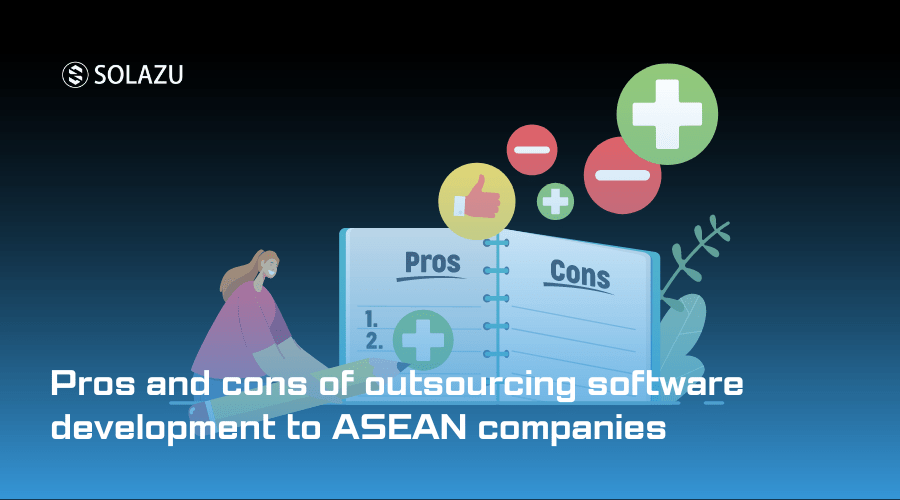Outsourcing software development to ASEAN (Association of Southeast Asian Nations) countries such as Vietnam, Thailand, and the Philippines has become an increasingly popular option for many businesses. The region offers a highly skilled and cost-effective workforce, making it an attractive alternative to in-house development. However, outsourcing also has its potential drawbacks. In this article, we will explore the pros and cons of outsourcing software development to ASEAN companies.
Pros
- Cost-effective: One of the most significant benefits of outsourcing software development to ASEAN countries is cost-effectiveness. The region’s labor costs are lower than those in Western countries, allowing businesses to save money on salaries, benefits, and overhead.
- Access to a highly skilled workforce: The ASEAN region has a large pool of highly skilled developers, many of whom have advanced degrees and certifications. This makes it possible to find top talent at competitive rates.
- Time zone advantages: Another advantage of outsourcing to ASEAN countries is that they are located in different time zones. This means that businesses can take advantage of 24/7 development cycles, with teams working around the clock to complete projects quickly.
- Diverse expertise: ASEAN countries have a diverse range of technology expertise, from software development and design to data science and artificial intelligence. This diversity allows businesses to tap into specialized skills that may not be available in-house.
- Focus on core competencies: Outsourcing allows businesses to focus on their core competencies while leaving software development to experts. This frees up internal resources and enables companies to devote more time and attention to other critical areas of their business.
Cons
- Communication challenges: One of the most significant challenges of outsourcing to ASEAN countries is communication. Language barriers and cultural differences can make it difficult to convey requirements and ensure that the project is progressing as expected.
- Quality control issues: Outsourcing software development to a remote team means that businesses have less control over the quality of the work being done. It can be challenging to ensure that the team is following best practices, adhering to timelines, and producing quality work.
- Time zone differences: While time zone differences can be an advantage, they can also pose a challenge. Coordinating meetings and ensuring that everyone is on the same page can be difficult when there is a significant time difference.
- Data privacy and security concerns: Outsourcing software development to ASEAN countries can pose data privacy and security risks. Ensuring that the remote team is following best practices for data privacy and security can be challenging, and businesses may need to invest in additional security measures.
- Intellectual property concerns: Outsourcing software development to a remote team can pose intellectual property risks, as there is a risk of theft or misuse of proprietary information. Businesses must take steps to protect their intellectual property and ensure that the remote team is adhering to strict guidelines and best practices.
Conclusion
Outsourcing software development to ASEAN companies can be a cost-effective way to access highly skilled talent and expand your business. However, it’s essential to weigh the pros and cons carefully before making a decision. Communication, quality control, time zone differences, data privacy and security, and intellectual property concerns are all potential risks that businesses must consider when outsourcing to ASEAN countries. By taking the time to address these challenges, businesses can reap the benefits of outsourcing while minimizing the potential drawbacks.
